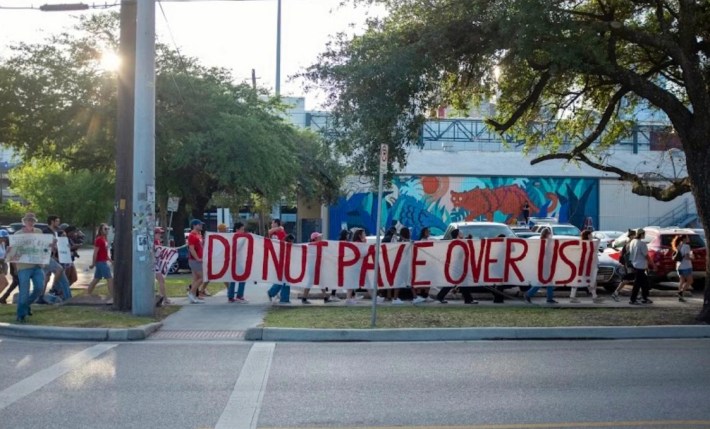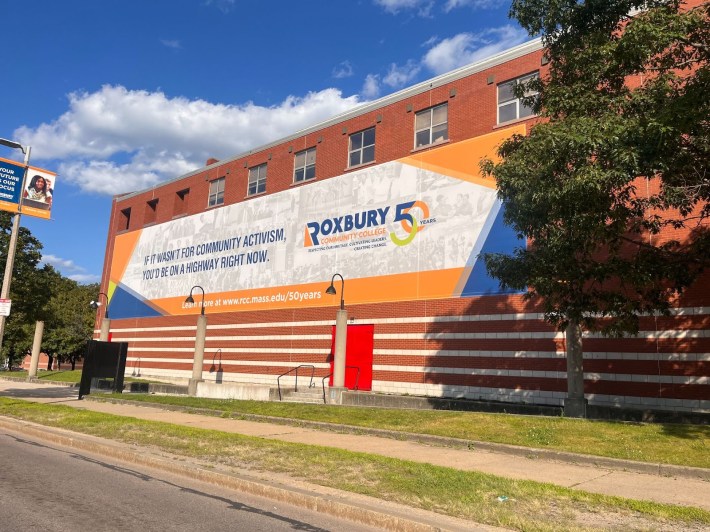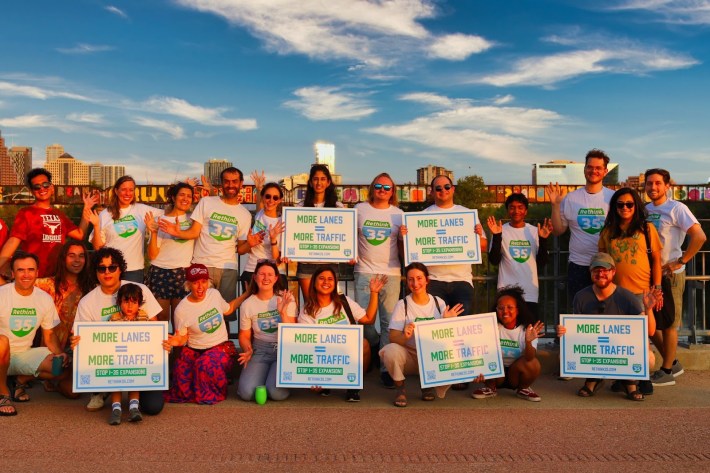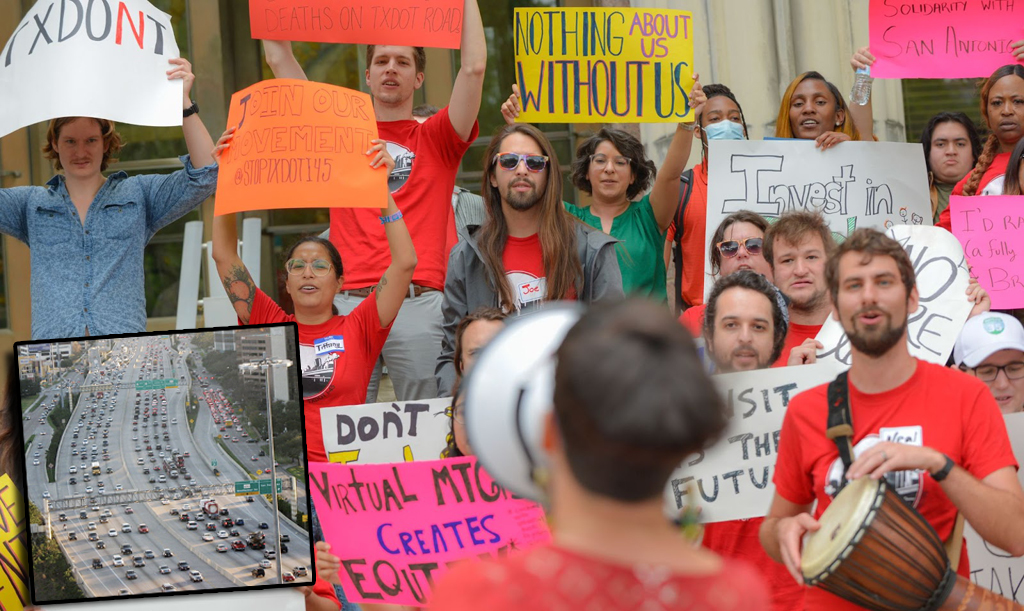In August 2022, I met freeway fighters from all across Texas at the State Highway Building in downtown Austin. It was the day the Texas Transportation Commission would vote on their budget for 10 years of transportation projects.
I held a banner reading “Do Not Pave Over Us” when the commissioners unanimously approved the plan. Did they not just hear three hours of public testimony begging them to not expand the highways through our cities? Did they not read their own powerpoint slides? Did they not see that out of 108 comments, only two were in favor of I-35 expansion in Austin?

A year later, the Texas Department of Transportation published 3,421 public comments in their Final Environmental Impact Statement for their I-35 project through central Austin. An overwhelming 75 percent of those comments were in opposition. Despite the Texas DOT tweets stating “#WeAreListening,” they were not, in fact, listening. Rather than give up, I felt it was time to make our voices heard on our own terms.
There’s an established history of freeway fighters in this country who had to fight to be heard. A quick Google search for “highway revolts” shows people in paper hats that state “Save us from the freeway” in the 1960s. The Wikipedia page for “Highway Revolts in the United States” lists nationwide protests in 26 states, and the phrase “would have” repeatedly describes the destruction that communities saved themselves from. Often, they continued protesting even after construction began; 37 US urban highways were halted mid-construction by the communities in their path.
I learned about a successful group of protesters in Boston in the book, “People Before Highways.” Reading this book, I was in awe of my activist predecessors: “By refusing to accept highway construction as inevitable and drawing public attention to the issue, Chuck Turner and his activist allies in Boston were successful in provoking neighborhood engagement in a battle that many residents had already considered lost.”

One “People Before Highways” rally on Boston Common in 1969 brought together 2,000 demonstrators, who stopped I-95 from cutting through inner-city neighborhoods. The community decided that it preferred a subway line and a park, and that’s what was built instead.
These protestors inspired me to suggest that it was time for Rethink35 to host our own rally against the I-35 expansion through Austin — and make it the biggest freeway rally Texas has ever seen.
Texans have a reputation for loving their vehicles and highways. I believe that’s a false narrative. I’ve asked many Texans across the political spectrum, “Wouldn’t it be nice if there was a high-speed train between Austin and San Antonio that only took 45 minutes?” and I’ve never once had someone say “No”! Texans want options.
So why don’t we have options? And why is transportation treated as a fringe issue? Transit affects every single Texan daily. Transit was not a topic in the last Texas gubernatorial debate, even though the governor appoints people to the Texas Transportation Commission. Unknown to most Texans, that commission currently consists of oil and gas barons and a strip mall investor.
Last year, I learned that the Metropolitan Planning Organization that includes Austin, also known as CAMPO, approves projects for our region even though Austin is underrepresented in it. Houston has a similar model, and there is an election right now to change the representation and give Houstonians say over infrastructure in their own city.
I got educated on these power structures after meeting Houston freeway fighters at the Texas Transportation Commission protest last year. Joining together in action was the foundation for hope, and for relationships that would lead to Zoom calls between Austin and Houston uplifting each other for our prospective efforts, and sharing strategy that works.
I have seen firsthand that public pressure on politicians works. When Rethink35 posted city council candidate’s stances on I-35 before the November 2022 election, we saw them start to take a more firm posture in opposition. This came full circle when in October, the Austin City Council approved a resolution asking CAMPO to delay funding for the project. In my public comment to the council on that item, at the podium I looked up at them and said, “The public is here to back you up.”
Holding a rally is an opportunity to get people involved in the movement, to educate them on the power structures, to shift the “Overton Window” and make transit an issue politicians must answer to in Texas. I absolutely believe it’s possible for us to stop I-35 expansion in Austin, but this fight is even bigger than that. “At stake was not only a highway [...] but also [...] the conviction that citizens themselves had the right to decide and control the future of their built environments,” according to “People Before Highways.”
It is up to us to determine what the history books will say about this moment. My choice is this narrative: “Thousands of Austinites gathered to oppose an expanded I-35 through downtown Austin."

For those in the Central Texas region, join us this Sunday, November 5 at 11 a.m. at Sanchez Elementary School if you believe in a different infrastructure vision for Texas.






